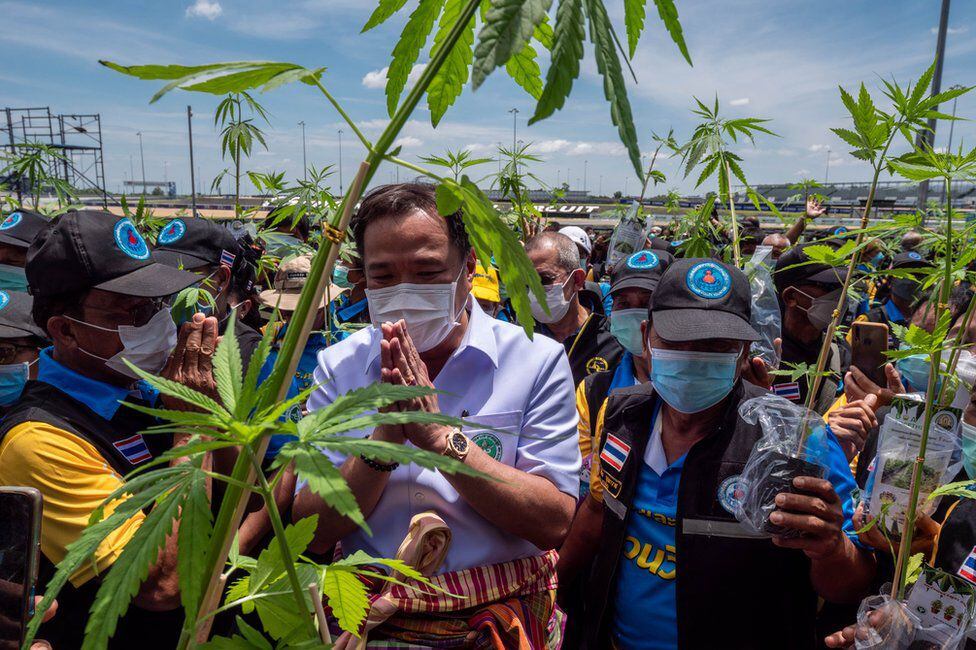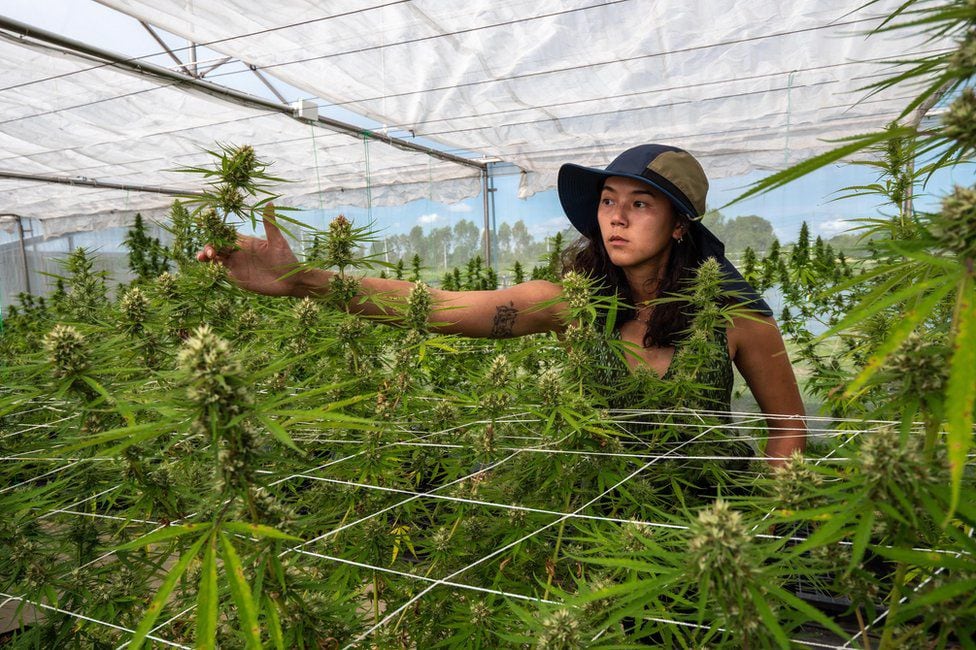Thailand legalized the cultivation and consumption of cannabis this month, reversing a hard-line policy that included lengthy prison sentences or even the death penalty for drug offences. BBC Southeast Asia correspondent Jonathan Head reports on what’s behind this dramatic change.
21 years ago I had one of the most shocking experiences of my journalistic career. We were invited to watch and film the execution of five prisoners, four of them convicted drug dealers, by firing squad at Bangkwan Prison in Bangkok.
LOOK: The tragic story of Patrice Lumumba, the assassinated Congolese leader with only one gold tooth left
The look on the faces of those men as they walked with their leg chains jingling towards the pavilion where the executions took place is something I will never forget.
That was part of the “war on drugs” of then Prime Minister Thaksin Shinawatra, which later escalated and led to the killing of many hundreds of drug suspects.
Thaksin’s campaign was popular. Thais were concerned about the harmful effects of narcotic drugs such as methamphetamine on their communities and were willing to ignore the egregious human rights violations involved in the violent crackdown.
Other countries in the region have followed the same punitive approach, especially the Philippines after the arrival to power of the president Rodrigo Duterte in 2016. Singapore and Malaysia have imposed the death penalty for drug trafficking for decades.
Tourists arriving in Southeast Asia have long been warned of the harsh penalties they face if they are caught with even small amounts of marijuana.
It is hard to imagine, then, that what we have seen in recent weeks is actually happening in Thailand.
The coffees have openly sold all kinds of cannabis products or displayed jars filled with potent marijuana flowers.
Public Health Minister Anutin Charnvirakul – the architect of the new law that now gives Thailand perhaps the world’s most liberal marijuana regime – was seen sampling grassy curries, to applause from farmers who hope he will bring them new sources of income.
There were groups of laughing Thai grandmothers sipping bright green cannabis drinks and lining up to pick up one of the million free marijuana plants the government is handing out.
The new law appears to provide Thailand with perhaps the most liberal approach to marijuana in the world. At the moment, people can grow and consume as many plants as they want.although there are some limits when it comes to marketing and selling it.
“One thing is clear. You can no longer go to jail in Thailand just for using cannabis,” says Tom Kruesopon, a pioneering businessman who helped convince the government to change its approach.
“You can go to jail for doing other things, like smoking in public, causing a public nuisance, or creating and selling a product from cannabis that you haven’t gotten Food and Drug Administration approval for. But Thailand is the first country in the world where you can not go to jail for growing or consuming the plant“, he adds.
“This is like a dream for us. We never thought we would get this far in Thailand,” says Rattapon Sanrak, who began campaigning for marijuana legalization after experiencing its medical benefits while studying in the United States.
Two grandparents, her father, and later her mother died of cancer. Running back from the United States to care for her mother, she unsuccessfully tried to convince her to use cannabis products to relieve her pain and found it difficult to access what were then illegal substances.
Politics and market
How do you explain this spectacular change of course in a country still run by a conservative military that seems unlikely to liberalize drug laws?
Part of the reason is politics. Health Minister Anutin Charnvirakul adopted marijuana legalization as his party’s signature policy in the 2019 election. The party’s stronghold is in rural and poor northeast Thailand and that proposal appealed to farmers struggling to make a living with the cultivation of rice and sugar and that they need a new cash crop.
So when he announced the new law at his political headquarters in Buriram earlier this month, he was able to tell the cheering crowd that he had delivered on what he had promised. Charnvirakul believes in the medical benefits of legalization, which he hopes will allow poorer Thais to grow their own treatments, instead of having to pay for expensive chemical drugs.

It is also a business. kruesopon calculates that marijuana will generate US $ 10,000 million in its first three yearsbut could gain much more from cannabis tourism, where people flock to Thailand specifically for therapy and treatment using marijuana extracts.
He has opened the first dispensary in Bangkok that is exclusively dedicated to this type of treatment. Some of the biggest Thai companies are already looking for ways to cash in on the weed bonanza.
By liberalizing the law so quickly and completely, the government hopes to preempt neighboring countries, many of which may be reluctant to follow Thailand’s lead.
But there is a third factor behind the new marijuana regime: a rethinking of the hard-line approach to drug use, which began seven years ago, surprisingly at a time when Thailand was ruled by a military junta.
The country has some of the most overcrowded prisons in the world and three-quarters of inmates are there for drug offenses, many of them minors.. Not only has this provoked international criticism for the poor conditions in which the prisoners have to live, but it also costs money for the government that pays for their upkeep.
It was a military man who held the position of Minister of Justice, General Paiboon Kumchaya, who announced in 2016 that the war on drugs had failed and that another less punitive method was needed to deal with the use and abuse of narcotics.
When Charnvirakul introduced his marijuana policy, with all its tantalizing economic benefits, he realized he was pushing a relatively open door, though he says he still had a hard time pushing to get here.
Another result of the law change is that more than 4,000 people accused of cannabis-related crimes are getting out of jail.
However, the government may not have been prepared for the enthusiastic embrace of cannabis in all its forms that has been seen throughout Thailand since the new law was passed.
The plant appears everywhere: in ice cream, garnishing classic Thai dishes, and in new smoothie recipes.. Even chicken meat is sold from birds that have apparently been fed cannabis. The new law makes practically everything related to cannabis legal.
The government is now drawing up additional regulations on its use. Officially, their position is that the law only allows the use of cannabis for medical purposes, not recreational purposes, but it is difficult to see how they will apply that distinction.

“We all know from studying other markets that recreational use is where the money is,” says Chidchanok Chitchob, a self-described marijuana enthusiast whose father, a powerful political figure from Buriram, was one of the first to jump on the bandwagon. Thai marijuana.
“So I think this should be a good step towards that, if we really think of this as an economic crop.”
She is experimenting with different strains of the plant to help local farmers grow the right types for the region.
Kruesopon says he has no problem with more regulation. He is in favor of marijuana being sold only to authorized vendors, with a prescription, and never to those under 18 years of age.
“You don’t have to think about this too much,” he adds. “What is used for cigarettes, is used the same for cannabis. There are already laws that help control the consumption of cigarettes and the use of alcoholic beverages: just use the same laws,” he says.
This is an unusually bold step by the Thai government into a new world. The rest of the region will be waiting to see if it works.
Source: Elcomercio
I, Ronald Payne, am a journalist and author who dedicated his life to telling the stories that need to be said. I have over 7 years of experience as a reporter and editor, covering everything from politics to business to crime.

:quality(75)/cloudfront-us-east-1.images.arcpublishing.com/elcomercio/GE3TANRNGA3C2MRXKQYDAORRG4.jpg)

:quality(75)/cloudfront-us-east-1.images.arcpublishing.com/elcomercio/RPJROQVAJ5B37H63IB4CPRCTJY.jpg)
:quality(75)/cloudfront-us-east-1.images.arcpublishing.com/elcomercio/IYDS3N674JCGPMG2OUWFIWVARY.jpg)
:quality(75)/cloudfront-us-east-1.images.arcpublishing.com/elcomercio/BEZRTXP6VNEI3KVRVELPE5C4XM.jpg)
:quality(75)/cloudfront-us-east-1.images.arcpublishing.com/elcomercio/JQGFGBLPNVCZ5LUBTZXRGM44PU.jpg)
